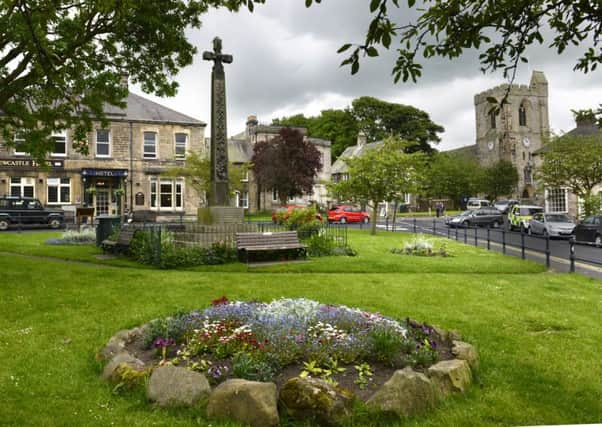Rothbury, History Society


When the old Bellingham Police Station was being re-painted a door was opened into a small room of old police papers from 1935-50. It would appear that nothing had been thrown away.
It covered every aspect of their work. Some were written in faded indelible pencil, and even some in code. But no one has yet solved the murder committed in the house opposite the Otterburn Police House.
Advertisement
Hide AdAdvertisement
Hide AdDr Roberts’ talk to Rothbury and Coquetdale History Society skimmed through 200 years, during which Northumberland’s policing developed from a fairly efficient and cheap local system to a national ubiquitous service in the 1950s.
An embryonic service was created by the Tudors, who directed the appointment of Justices of the Peace to control ale houses, local markets and fairs. These JPs were locally elected on an annual basis.
Attached to Elson Church is the election Vestry where the records were kept. They also oversaw the pound and common land. Later excise officers were appointed to close the illicit whisky stills and the cross-border smuggling trade. Even when officers lived in the border area, locals still managed to wrong-foot them.
Between 1739-1835 the rest of the country was developing a professional and organised police force.
Advertisement
Hide AdAdvertisement
Hide AdThe Bow Street Runners and Robert Peel attempted to recreate his Northern Irish experience of civil policing and professionalism. But of 3,000 first recruits of working men, 2,238 were dismissed for various offences.
Wages were based on agricultural pay. Although the leadership was usually ex-military, the force only carried truncheons. If necessary, they called in the army.
None of this was adopted in Northumberland. t’s system worked, and was cheaper.
However, in 1831 the Game Act was passed to control hunting on other people’s land. ll landowners and those with an income over £300 could contribute to local Associations to stop poachers of game. Poachers would come from the growing towns, usually at night and some in armed gangs, prepared to kill gamekeepers.
Advertisement
Hide AdAdvertisement
Hide AdLocally, North Tyne and Rede, South Tyne and Alnwick had their Associations. The North Tyne and Rede Association was based first in Capheaton Hall, run by the Swinburne family, with agents housed throughout the area.
One called Edward Lawson was housed on Lord Redesdale’s estate at Horsley, north of Otterburn. From his diaries and note books we see that he had many contacts, and was well trusted. He continued until his retirement in 1874.
In the meantime the police service was growing in Northumberland; in 1861 with 94 men and 1941 with 381 men, and much improved wages.
Communication gradually developed from the days of the Penny Post services. The Superintendant was successively given horses and carts, communication using the railways, and electric telegraph by1870, bicycles in 1890, and telephones in 1903 were finally used.
Advertisement
Hide AdAdvertisement
Hide AdEvery detail of all phone messages were logged in and out, and some were encrypted, especially in wartime and national emergencies.
In 1920 they hired vehicles and in 1930 four motor cycles and a car were given to the Chief Constable.
Their duties had expanded from preventing padding, poaching, apprehending felons, (and closing the Colwell Still in 1878), to refugees, traffic, cruelty to animals, and generally anything concerning the peace.
They were also required to do casework such as checking gun licences and assisting at the Civilian Instruction Centres for unemployed men before the war (at Byrness and Kielder). In war they co-operated with the Rural District Councils with what was generally required to help and keep civilians and evacuees safe. The secret Ottercops Radar Station near Otterburn was on their patch. The policeman’s lot just kept on expanding.
Next meeting: The Rush to Colours: Why the men of the North East joined up in greater numbers than any other region, on Friday, March 18, in The Jubilee Hall, Rothbury, at 7.30pm, all welcome.